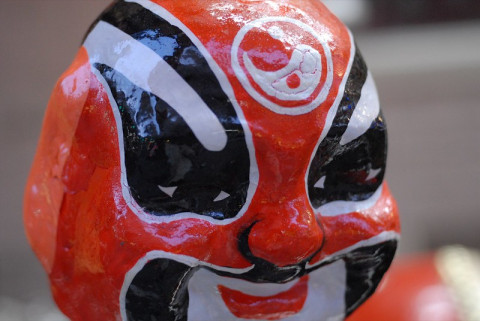Mianzi – The Concept of Face in Chinese Culture
Do you work or do business with the Chinese?
Then you really need to get to grasp the importance of face – mianzi – in Chinese culture.
Understanding how the Chinese communicate, how they like to share information and what behaviours they expect from those around them can help enormously in building solid professional relationships.
Face is so central to the Chinese that Lu Xun, a 20th-century Chinese writer, described it as the “guiding principle of the Chinese mind”.
For the Chinese it is so core to their way of life that they don’t even realise it.
However, when they come across foreigners who don’t quite understand it, problems can arise.
DON'S MISS THE FREE SAMPLE OF OUR COURSE ON CHINESE CULTURE AT THE END!
Mianzi. What does it mean?
Mianzi (pronounced something like 'mee-yan-zer') or face refers to a sociological concept we can find in many cultures that links the ideas of honour, dignity, self-worth and prestige that a person feels when in social situations.
Face can be lost, given or even fought for.
Here are some basic examples:
- Losing face: being the butt of a joke, not knowing the answer to a question or being blamed for something publicly.
- Giving face: giving someone a gift, paying someone a compliment or showing deference (opening a door for someone or seating them at the head of a table).
- Fighting for face: Arguing over who pays the bill at a restaurant, disagreeing over who is the more senior/experienced or trying to be the first into a room.
Within Chinese culture, mianzi promotes trust and respect, which are crucial to gradually building guanxi, connections; the oil that greases the Chinese economy.
Reciprocity is key to keeping people together.

Drinking tea is an important part of the relationship-building process in Chinese culture.
Click here to learn how to make a great impression with the Chinese
Photo by 五玄土 ORIENTO on Unsplash
Mianzi and Chinese Culture
Chinese culture is collectivist and group orientated.
One consequence of this, which very much derives from Confucian teachings, is that every individual has certain duties and responsibilities that are defined by their social roles (husband, wife, son, daughter, boss, employee, etc).
Everyone, therefore, has several social roles (one can be a husband, a boss and a customer) and therefore one has different mianzi according to each specific social role and the context or situation (i.e. one may have more mianzi with one’s employees, but less mianzi with one’s manager).
Mianzi should mirror your social role; if it doesn’t, that’s when cracks appear.
For example, in Chinese culture the man in a boyfriend/girlfriend relationship should be of superior status. So, if a man has a girlfriend who earns more money than him, this diminishes his mianzi.
The same thing happens in business. The Chinese are very aware of the level of mianzi they should project and if this is threatened, it causes interpersonal and communication problems.
A very simple example would be if a foreigner visiting China makes a comment to their host about not liking the food. For the Chinese, in their role as hosts, this would be taken as a slight on their mianzi.
Take a Course on Chinese Business Culture
If you want to learn more about mianzi and many other Chinese cultural concepts, then sign-up for our Online China Cultural Awareness e-Learning Course.
It’s packed full of essential working and communication strategies for professionals working in China or remotely with the Chinese.
Alternatively, our live, bespoke Chinese cultural awareness training webinars are a great way of exploring specific business challenges that you or your team might be facing.
Watch a preview below or scroll down to take a free sample of the course.
You might also be interested in the following blogs:
- What's the best thing about being an expat in China?
- How easy is it to do business in China?
- Chinese etiquette school based on British manners
Main image by Mo Riza on Flickr (CC BY 2.0)
Related Posts
By accepting you will be accessing a service provided by a third-party external to https://www.commisceo-global.com/

 +44 0330 027 0207 or +1 (818) 532-6908
+44 0330 027 0207 or +1 (818) 532-6908
